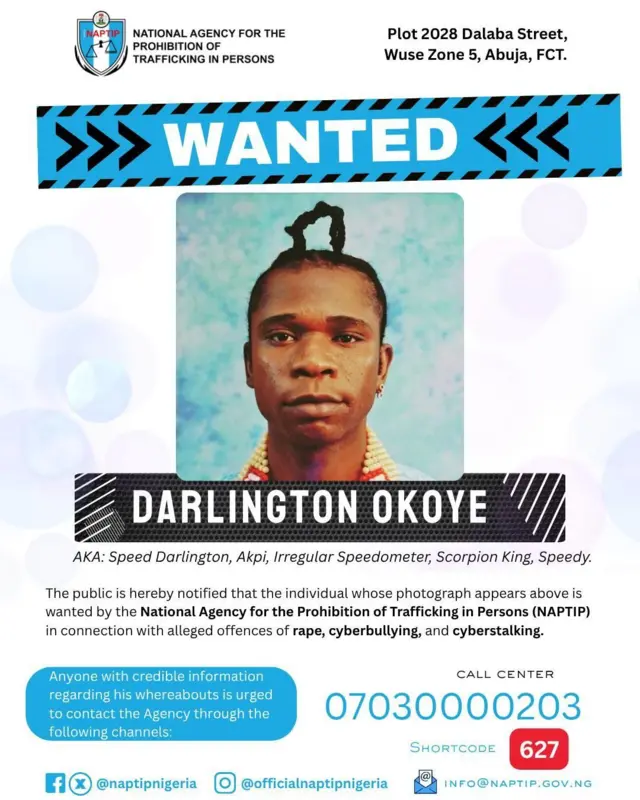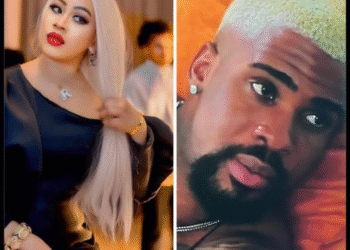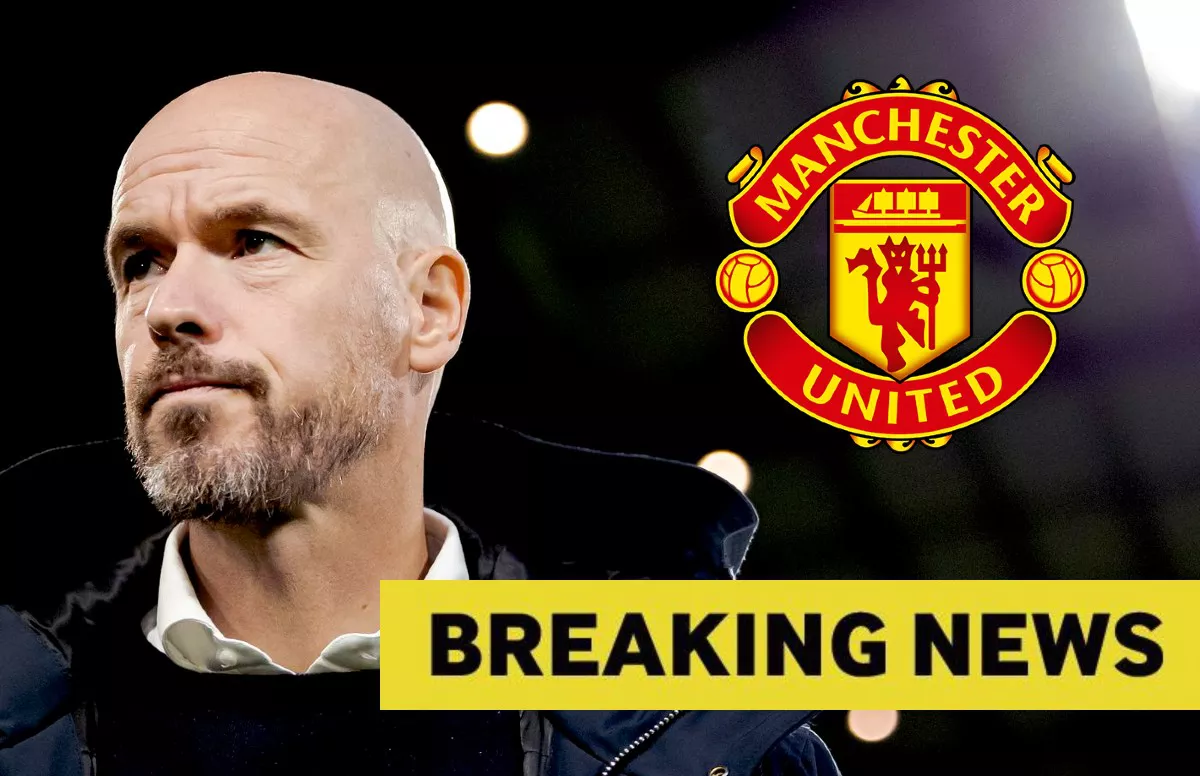By Fasuyi Tolulope Samuel
Controversial Nigerian singer Darlington Achakpo Okoye, popularly known as Speed Darlington, has taken legal action against the National Agency for the Prohibition of Trafficking in Persons (NAPTIP).
The singer is demanding a whopping N3 billion in damages for defamation. The lawsuit, filed at the Federal High Court in Abuja on July 9, 2025, by his legal representatives, challenges NAPTIP’s decision to declare him wanted over serious allegations.
According to court documents, the artist insists that the agency’s actions have severely harmed his reputation, subjected him to public ridicule, and endangered his personal safety.
On June 27, NAPTIP posted a notice on its official Instagram page, stating: “WANTED BY NAPTIP. Darlington Okoye, aka Speed Darlington, is wanted in connection with alleged offences including rape, cyberbullying and cyberstalking. Anyone with credible information on his whereabouts is urged to contact NAPTIP immediately.”

The agency’s decision stemmed from a video Speed Darlington posted on Instagram, where he claimed to have had carnal knowledge of a minor in a hotel.
Despite later dismissing the statement as a prank, the video sparked outrage and prompted the Lagos State Domestic and Sexual Violence Agency (DSVA) to escalate the case to NAPTIP for investigation.
In response, NAPTIP summoned the singer to its Abuja office for questioning. However, after he failed to appear, the agency proceeded to declare him wanted.
In his defense, Speed Darlington claimed his controversial statements were a publicity stunt aimed at boosting engagement. He also issued a public apology, stating that: “Artistes need controversy to thrive. It was never meant to be taken seriously, and I apologize to anyone who felt offended.”
The lawsuit seeks not only monetary compensation but also a perpetual injunction to restrain NAPTIP from further acting on or distributing the June 27 publication. Speed Darlington’s legal team argues that the agency acted without proper investigation or legal basis, thereby violating his rights.
The case is expected to test the limits of public accountability for online content and the responsibilities of law enforcement agencies in a digital age.
























